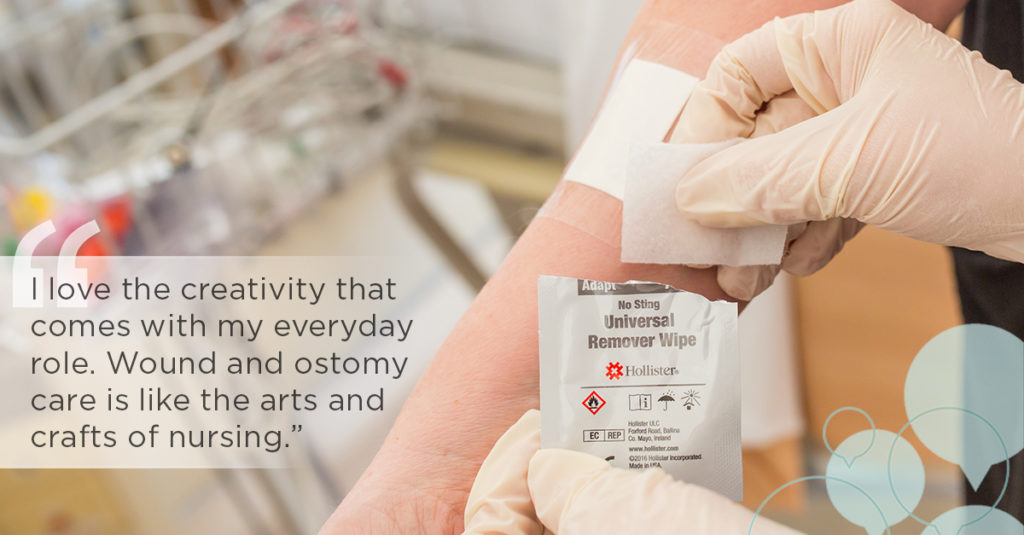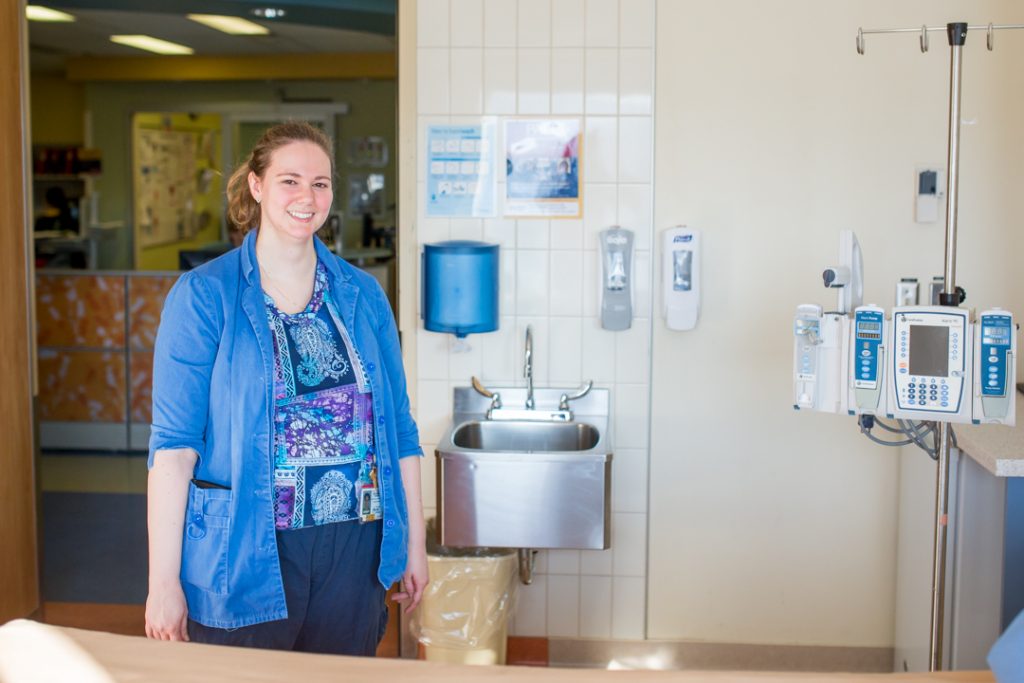
Introducing… a nurse clinician
Stephanie Furtado is a skin, wound and ostomy nurse clinician based at McMaster University Medical Centre and West Lincoln Memorial Hospital. She’s been with Hamilton Health Sciences (HHS) for 10 years including two years in her current role.
What do you love most about your role?
I love the creativity that comes with my everyday role. Wound and ostomy care is like the arts and crafts of nursing. As a former camp counsellor working in the craft cabin, this skill set feels natural to me. I use my clinical judgement and advocacy to improve patient outcomes and strive for best practice every time. Being part of a team across several areas of the hospital, I value the trust we built together in the past two years.
Wound and ostomy care is like the arts and crafts of nursing.
What do you find challenging?
My biggest challenge is being an effective advocate for best practice in wound care. We aim to reduce painful dressing changes, the frequency of dressings and optimize the use of products we have on the unit as well as staff resources. Everyone I work with wants to provide the best care for the patient, but they may not know what they can do differently to improve care. We can do some changes more quickly than others. It can be frustrating, but always worth the effort.
Describe a typical day
I feel like my days are in waves. Working mostly in pediatrics, I consult and teach our staff about complex wounds and ostomies. I am a member of unit, site and corporate groups to promote best practices and will often lead educational sessions. Some weeks I work all day with complex wounds, and other weeks I work mostly with ostomy patients. When I have a wave with less patients I focus on research to share our experiences with other clinicians.
I have seen how my clinical judgement and skills are positively impacting lives.
Tell us about your most gratifying experience at HHS
In my current role, I have seen how my clinical judgement and skills are positively impacting lives. In the past, I sometimes experienced times where I was made to feel I was incompetent and unworthy. Now, I often receive feedback from my patients, clinical teams, management and, recently, senior management to recognize and encourage my work. Specifically, my VP twice congratulated me for finding significant cost savings associated with an improvement opportunity I worked on with one of the clinical units, then again for an international conference accepting one of my research projects. It’s great to feel valued and knowing I belong here.
What’s one thing people would be surprised to learn about your role?
I think most people see the action of applying a dressing and they believe this is all we do. They don’t see all the background work involved and how much work I do on the patient advocacy side. I try to make sure each patient is cared for with the optimal number of team members and services. I don’t have all the answers or a magic bandage, but I can make sure the care team has the necessary contributions from a dietitian, child life specialist or physiotherapist.

